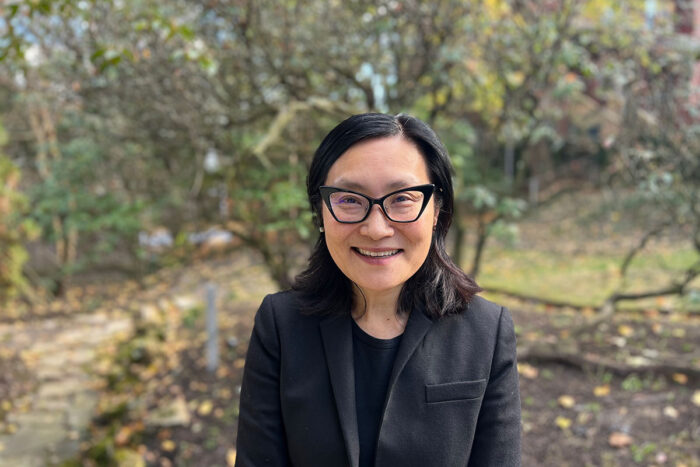Lee to lead pulmonary & critical care division
Pulmonologist specializes in body’s response to lung infections
 Anna Rosengart
Anna RosengartJanet Lee, MD, has been named director of the Division of Pulmonary & Critical Care Medicine at Washington University School of Medicine in St. Louis.
Janet S. Lee, MD, a highly regarded physician-scientist in pulmonary and critical care medicine, has been chosen to lead the Division of Pulmonary & Critical Care Medicine in the Department of Medicine at Washington University School of Medicine in St. Louis. Her appointment is effective Jan. 3.
Lee comes to Washington University from the University of Pittsburgh School of Medicine, where she is a professor of medicine in the Division of Pulmonary, Allergy and Critical Care Medicine and the chair in acute lung injury at the University of Pittsburgh Medical Center.
Also director of the Acute Lung Injury Center of Excellence and the Pulmonary Translational Research Core at the University of Pittsburgh, Lee cares for patients requiring intensive care as well as those with advanced lung diseases, including acute and chronic respiratory failure. Her research centers on the host response to severe lower respiratory tract infections and the molecular basis of distinct host-pathogen interactions triggering lung injury.
“Dr. Lee is exceptionally qualified to take on this new role,” said Victoria J. Fraser, MD, the Adolphus Busch Professor of Medicine and head of the Department of Medicine at Washington University School of Medicine. “She has a superb track record performing basic and translational discovery research with longstanding funding from the National Institutes of Health (NIH). We welcome her to Washington University and look forward to working with her to carry on and build upon the premier status of the Division of Pulmonary & Critical Care Medicine.”
Lee is a principal investigator on grants from the NIH’s National Heart, Lung, and Blood Institute (NHLBI), including a grant focused on host protection against pathogen-encoded proteases in acute lung injury and another on host control mechanisms in lung infections. She also leads a grant focused on patient-oriented research in acute lung injury and another on complement components and activity in patients with acute respiratory distress syndrome. She leads a training grant for residents and is a project leader on a program project grant to investigate immunosuppression in acute lung injury.
Lee also serves as a teacher and mentor and has trained more than 22 predoctoral and postdoctoral trainees in her laboratory. She has held leadership roles in the American Thoracic Society, most recently serving as chair of the membership committee. She is an elected member of the American Society for Clinical Investigation and the Association of American Physicians.
She earned her bachelor’s degree from Johns Hopkins University and her medical degree from Georgetown University School of Medicine. She completed her residency at the University of Alabama, Birmingham, and her fellowship in pulmonary and critical care medicine at the University of Washington, Seattle. She joined the faculty of the University of Pittsburgh School of Medicine in 2004.
Michael J. Holtzman, MD, who has led the Division of Pulmonary & Critical Care Medicine since 1992, is stepping down from his leadership role but will continue his research program. Holtzman, the Selma and Herman Seldin Professor of Medicine, has focused on understanding antiviral immune responses as pathways to worsening chronic lung disease and as targets for new drug discovery in respiratory diseases. His research includes the development of small molecule drug compounds and biologics for airway diseases, including asthma, chronic obstructive pulmonary disease and related postviral lung diseases.
“The division has thrived under the longstanding direction of Dr. Holtzman,” Fraser said. “Under his visionary leadership, the division has experienced remarkable growth in the scope and depth of its clinical programs, research and educational activities. It enjoys national prominence in basic research in acute and chronic lung disease, clinical care and education in multiple key areas. And throughout the COVID-19 pandemic, faculty members and staff in the division have provided exceptional clinical care and important research under extraordinarily difficult circumstances. We are grateful to Dr. Holtzman for his outstanding leadership and vision, and are fortunate that he is continuing his successful research here at Washington University.”






